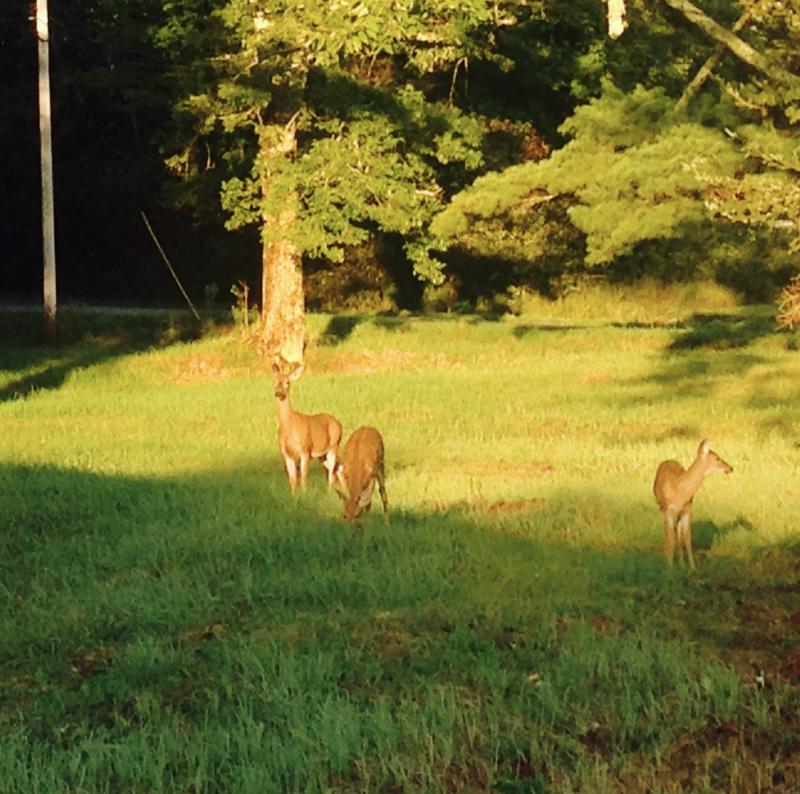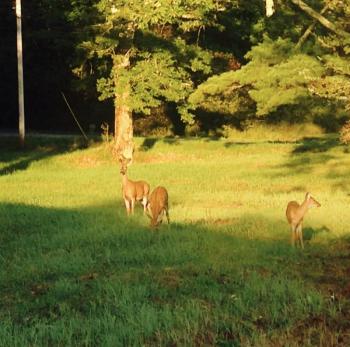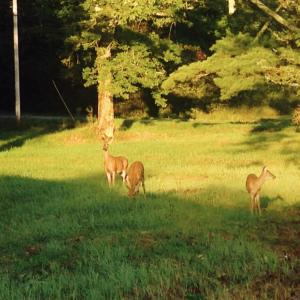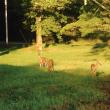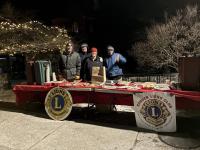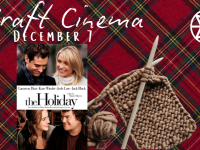If you care, leave them there: What to do, whom to call when discovering baby wildlife
With nature in full bloom, many people are headed outdoors – in their backyards, the woods and the beaches – to enjoy the nice weather. Wildlife is active, too, and the Maine Department of Inland Fisheries and Wildlife reminds people to follow these simple steps to be safe among the wildlife and to keep the young animals with their mothers.
Because wild animal parents can’t hire babysitters, and must leave their youngsters alone while they search for food, people often stumble upon a fawn hidden in the leaves on the forest floor, young birds taking their first flights, or young raccoon and fox kits wandering a bit too far from the home den.
Young wildlife is often ‘kidnapped’ by well-meaning people in the mistaken belief that they have been abandoned. The mother-young bond is very strong in mammals and birds, and parents will return given the opportunity to do so without human interference.
In most instances, if you come across any healthy young wild animal or bird, leave it alone! The mother will come back to care for it, as long as humans move a distance away to let the family reassemble. If you have pets, put them inside your home or leash them so they can’t disturb the young wildlings.
If, however, you think an animal may be orphaned, please contact MDIFW staff to see whether that is the case. Do not pick it up and take it home. Wild birds and mammals do not make good pets; and it’s against the law to possess them without the proper state and federal permits.
Every spring, moose calves and deer fawns are brought to the Maine Wildlife Park in Gray or to wildlife rehabilitators and the majority of them are not orphans. Here is what you should do if you see young wildlife or birds:
Fawns and Moose Calves: If you encounter a fawn, leave it alone. Adult mother does return only 2-3 times a day to young fawns to nurse them, otherwise leaving them stashed in a protected place and relying on their camouflage and lack of scent to protect them from predators. As soon as fawns are able to keep up with mom, they travel more with her as she forages for food.
Squirrels or Raccoons: If a nest of squirrels or raccoons must be disturbed, (for example, if a tree has been cut down or fallen) leave the young in the den part of the tree and leave them nearby in a protected place. The mother will in all likelihood come back and transport them to a new location.
Birds: The same is true for a bird’s nest. Put the nest and nestlings into a nearby tree, supported in a basket or other container that has drainage. The mother robin or blue jay is probably right around the corner, and will return to feed the young and care for them until they can fly on their own.
Common Questions:
Q: I just found a baby bird that has fallen out of the nest in my backyard. Should I bring it into the house and feed it until it can fly?
A: If you can put a baby bird back into its nest, do so. Human handling typically will not discourage the parents’ return. However, it is normal for some birds to leave the nest before they can fly. The parents keep track of them and feed them during the day. Keep your pets out of the area until the fledgling can fly.
Q: We just cut down a large dead tree, and a nest of squirrels was in it. Should I take care of and feed them?
A: Try to place the young in that portion of the tree where the best was located, or in an undisturbed location as close to the original site as possible. The mother squirrel will come back and relocate her young.
Q: I saw a mother fox hit by a car. Her two kits were huddling by the body. What do I do?
A: Report their location to a local game warden or animal control office. They are qualified to handle the young foxes and can transport them to a licensed wildlife rehabilitator. You can contact a local, on-duty game warden 24/7 by contact state police dispatch.
Q: I found a fawn while walking in the woods. I picked it up and carried it back with me. Now what do I do?
A: Immediately take the fawn back to the place where you found it. Mother deer leave their fawns in a safe hiding place for a house, usually feeding nearby, and was likely in the vicinity when you intruded! The mother will come back to the same place she left her fawn, in some cases 1 or 2 days after it was disturbed.
Q: A bird crashed into my picture window and seems unable to fly. What should I do?
A: Often, birds are just stunned from the impact with the window. Generally, they recover after a few hours and fly off. If, however, the bird is in danger in its disabled state, you should move it to a protected location, or put it in a large paper grocery bag in a warm, quiet place. When you start to hear it fluttering inside the bag, take it outside and release it. The first and best option for treating any injured wildlife is to place them in a dark, secluded place and leave them alone.
Q: I saw several baby raccoons at the base of a big tree looking “lost and hungry”. Did the mother abandon them?
A: The young racoons are probably just exploring. The mother raccoon has to go off to find food for herself and her young. They will stay close to their den until she returns. Keep your pets inside while the raccoons are around!z
WHOM TO CALL:
State Police Dispatch Centers:
To reach a Game Warden 24-hours a day, please contact the dispatch center nearest you.
Gray 1-800-228-0857
Augusta 1-800-452-4664
Bangor 1-800-432-7381
Houlton 1-800-924-2261
IFW Regional Headquarters:
Division A
Gray Regional Headquarters
RR 1, 358 Shaker Road
Gray, ME 04039
1-207-657-2345
Division B
Sidney Regional Headquaters
270 Lyons Road
Sidney, ME 04330
1-207-547-5300
Division C
Bangor Regional Headquarters
650 State Street
Bangor, ME 04401
1-207-941-4440
Division D
Greenville Regional Headquarters
P.O. Box 551
Greenville, ME 04441
1-207-695-3756
Division E
Ashland Regional Headquarters
64 Station Road P.O. Box 447
Ashland, ME 04732
1-207-435-3231
Event Date
Address
United States

